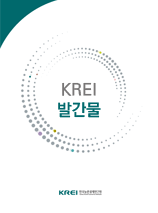
- Fact-checking of Unbalanced Korea-U.S. Trade and Countermeasures in the Agricultural Sector
-

-
U.S. President Donald Trump expressed his willingness to revise and amend the Korea-U.S. FTA, with his
negative perspective on the trade imbalance between the two countries. Korea and the U.S. recently agreed to
renegotiate the trade pact.
– At the request of U.S. President Trump, the first and second special joint committee meetings were
conducted on the KORUS FTA. After the second meeting, the two countries decided to commence the
amendment negotiation procedure.
In terms of BOP, Korea has recorded current account surplus with the U.S., but it has invested more in the U.S.
than the counterpart did in Korea. And TSI varies depending on the global competitiveness of a country.
– Korea’s average investment (financial account) in the U.S. improved from USD 3.1 billion of liabilities to
assets worth USD 18.1 billion after the implementation of the FTA. The country’s average current account
surplus went up by 106.7% from USD 16.2 billion to USD 33.5 billion after the implementation of the FTA.
– Korea’s TSI dropped in all industries where the country has higher competitiveness than the U.S. and the rest
of the world. The U.S. TSI against the RoW worsened, while its TSI in trade with Korea improved.
The merchandise trade in the agri-food sector has an unbalanced trade structure in which Korea’s imports are
much larger than its exports to other countries. A deficit in the goods account of livestock products (including
dairy products), fruits and nuts worsened after the FTA took effect.
– The TSI of more competitive product groups of Korea compared to the U.S. decreased from 0.68 in
2011 to 0.61 in 2016, which was lower than that of the U.S. (0.97). The TSI of less competitive
product groups slightly increased from –0.96 to –0.94 during the same period, but it was still much
lower than the U.S. (-0.66).
– The goods deficits increased in the categories of beef (USD 150 million in carcass, USD 200 million
in boneless meat), fresh cheese (USD 10 million), skim milk powder (USD 8 million), orange (USD 50
million), grape (USD 9 million), and grapefruit (USD 6 million).
Trade imbalance between Korea and the U.S implies that a balanced, adequate view on it can be made when a
macroscopic BOP including the current (goods) account is considered. The merchandise trade imbalance
between the two countries should be addressed without going against the purpose of the free trade agreement.
– Korea’s import-specialized structure in the agri-food sector can become permanent if the tariffs for
agricultural products imported from the U.S. are immediately abolished, and this could affect the free
trade agreements Korea concluded with other countries. Therefore, the resolution of goods deficit
should be aimed at enhancing the domestic and global competitiveness, rather than readjusting the
tariffs and the tariff elimination timing.
Korea needs to exert efforts to improve the structure of the agri-food sector that largely relies on imports,
and set the direction of policies by considering the domestic agricultural industry structure and market
conditions.
– The authorities should enhance the global competitiveness to improve the current import-specialized
structure of the agri-food sector in trade with the U.S., and transform the framework of the industry
and relevant policies with consideration for changing consumer demands and market conditions. To
this end, a cooperative system at the level of governance is required. -
목차
요약문
U.S. President Donald Trump expressed his willingness to revise and amend the Korea-U.S. FTA, with his
negative perspective on the trade imbalance between the two countries. Korea and the U.S. recently agreed to
renegotiate the trade pact.
– At the request of U.S. President Trump, the first and second special joint committee meetings were
conducted on the KORUS FTA. After the second meeting, the two countries decided to commence the
amendment negotiation procedure.
In terms of BOP, Korea has recorded current account surplus with the U.S., but it has invested more in the U.S.
than the counterpart did in Korea. And TSI varies depending on the global competitiveness of a country.
– Korea’s average investment (financial account) in the U.S. improved from USD 3.1 billion of liabilities to
assets worth USD 18.1 billion after the implementation of the FTA. The country’s average current account
surplus went up by 106.7% from USD 16.2 billion to USD 33.5 billion after the implementation of the FTA.
– Korea’s TSI dropped in all industries where the country has higher competitiveness than the U.S. and the rest
of the world. The U.S. TSI against the RoW worsened, while its TSI in trade with Korea improved.
The merchandise trade in the agri-food sector has an unbalanced trade structure in which Korea’s imports are
much larger than its exports to other countries. A deficit in the goods account of livestock products (including
dairy products), fruits and nuts worsened after the FTA took effect.
– The TSI of more competitive product groups of Korea compared to the U.S. decreased from 0.68 in
2011 to 0.61 in 2016, which was lower than that of the U.S. (0.97). The TSI of less competitive
product groups slightly increased from –0.96 to –0.94 during the same period, but it was still much
lower than the U.S. (-0.66).
– The goods deficits increased in the categories of beef (USD 150 million in carcass, USD 200 million
in boneless meat), fresh cheese (USD 10 million), skim milk powder (USD 8 million), orange (USD 50
million), grape (USD 9 million), and grapefruit (USD 6 million).
Trade imbalance between Korea and the U.S implies that a balanced, adequate view on it can be made when a
macroscopic BOP including the current (goods) account is considered. The merchandise trade imbalance
between the two countries should be addressed without going against the purpose of the free trade agreement.
– Korea’s import-specialized structure in the agri-food sector can become permanent if the tariffs for
agricultural products imported from the U.S. are immediately abolished, and this could affect the free
trade agreements Korea concluded with other countries. Therefore, the resolution of goods deficit
should be aimed at enhancing the domestic and global competitiveness, rather than readjusting the
tariffs and the tariff elimination timing.
Korea needs to exert efforts to improve the structure of the agri-food sector that largely relies on imports,
and set the direction of policies by considering the domestic agricultural industry structure and market
conditions.
– The authorities should enhance the global competitiveness to improve the current import-specialized
structure of the agri-food sector in trade with the U.S., and transform the framework of the industry
and relevant policies with consideration for changing consumer demands and market conditions. To
this end, a cooperative system at the level of governance is required.저자정보
저자에게 문의
구매안내
KREI의 출판물은 판매 대행사 (정부간행물판매센터)와 아래 서점에서 구입 하실 수 있습니다.
판매대행사
- (주)정부간행물판매센터http://www.gpcbooks.co.kr사이트 바로가기
- 서울특별시 중구태평로 1가 25번지
- TEL 02) 394-0337, 734-6818
- FAX 02) 394-0339
판매서점
판매서점 교보문고 http://www.kyobobook.co.kr/ 영풍문고 http://www.ypbooks.co.kr/ 알라딘 http://www.aladin.co.kr/ 활용도 정보
활용도 정보 상세정보 조회 좋아요 다운로드 스크랩 SNS공유 4704 0 14 0 0 -
- Suggestions to Promote the Hometown Love Donation System
- Gouk, Seungyong
- 2022.11.25
- KREI 이슈리포트
-
- Ten Years of Korea-U.S. FTA: focusing on agri-food trade
- Kim, Kyungphil
- 2022.06.09
- KREI 이슈리포트
-
- Impacts of Ukraine-Russia Conflict on Global Grain Prices
- Kim, Jongjin
- 2022.03.31
- KREI 이슈리포트
-
- The Impacts of the COVID-19 on the Korean Agricultural Market
- Seo, Hong-Seok
- 2020.06.05
- KREI 이슈리포트
-
- 10 Agricultural Policy Issues of Korea in 2019
- Jeong, Minkook
- 2019.01.29
- KREI 이슈리포트
-
- State of Korean and Overseas Markets for Environment-Friendly Agricultural Products and Challenges 2018
- Jeong, Hakkyun; Sung, Jaehoon; Lee, Hyeonjeong
- 2018.09.12
- KREI 이슈리포트
-
- Measures to Establish the Water-Energy-Food Nexus for Agricultural Resource Management
- Sung, Jaehoon; Cho, Wonju; Lee, Hyeonjeong
- 2018.09.05
- KREI 이슈리포트
-
- Changes in the Trade of Agricultural and Livestock Products and Implications after Seven Years from the Enforcement of the Korea-EU FTA
- Song, Woojin; Lee, Hyunkeun; Myeong, Suhwan; Yoo, Juyoung
- 2018.06.29
- KREI 이슈리포트
-
- 10 Agricultural Policy Issues of Korea in 2018
- Kim, Byoungryul
- 2018.01.22
- KREI 이슈리포트
-
- Income Changes by Type of Farm Household and Implications
- Woo, Byungjoon
- 2017.11.30
- KREI 이슈리포트
-
- 10 Agricultural Policy Issues of Korea in 2019
- Jeong, Minkook
- 2019.01.29
- KREI 이슈리포트
-
- Income Changes by Type of Farm Household and Implications
- Woo, Byungjoon
- 2017.11.30
- KREI 이슈리포트
-
- 10 Agricultural Policy Issues of Korea in 2018
- Kim, Byoungryul
- 2018.01.22
- KREI 이슈리포트
-
- Job Creation Potential for the Youth and Challenges in the Agricultural Industry
- Ma, Sangjin
- 2017.01.01
- KREI 이슈리포트
-
- Implementation Plan and Implications of International Development Cooperation Projects for Agriculture in 2017
- Heo, Jang
- 2017.04.28
- KREI 이슈리포트
-
- 2016 Production Status and Market Prospect of Eco-Friendly Agricultural Products at Home and Abroad
- Jeong, Hakkyun; Lee, Hyejin; Kim, Changgil
- 2016.11.30
- KREI 이슈리포트
-
- The Impacts of the COVID-19 on the Korean Agricultural Market
- Seo, Hong-Seok
- 2020.06.05
- KREI 이슈리포트
-
- Global Spread of Saemaul Undong for Rural Development in Developing Countries
- Heo, Jang; Lee, Yoonjung
- 2016.11.30
- KREI 이슈리포트
-
- Goals and Strategies to Reduce Greenhouse Gas Emissions in the Agriculture Sector
- Jeong, Hakkyun; Kim, Changgil
- 2015.11.03
- KREI 이슈리포트
-
- 70 Years' Achievements and New Challenges of Korean Agriculture and Rural Communities
- Song, Miryung; Moon, Hanpil; Kim, Meebok; Seong, Jooin; Lim, Jieun
- 2015.09.15
- KREI 이슈리포트
의견남기기
- 이전글 Implementation Plan and Implications of International Development Cooperation Projects for Agriculture in 2017


